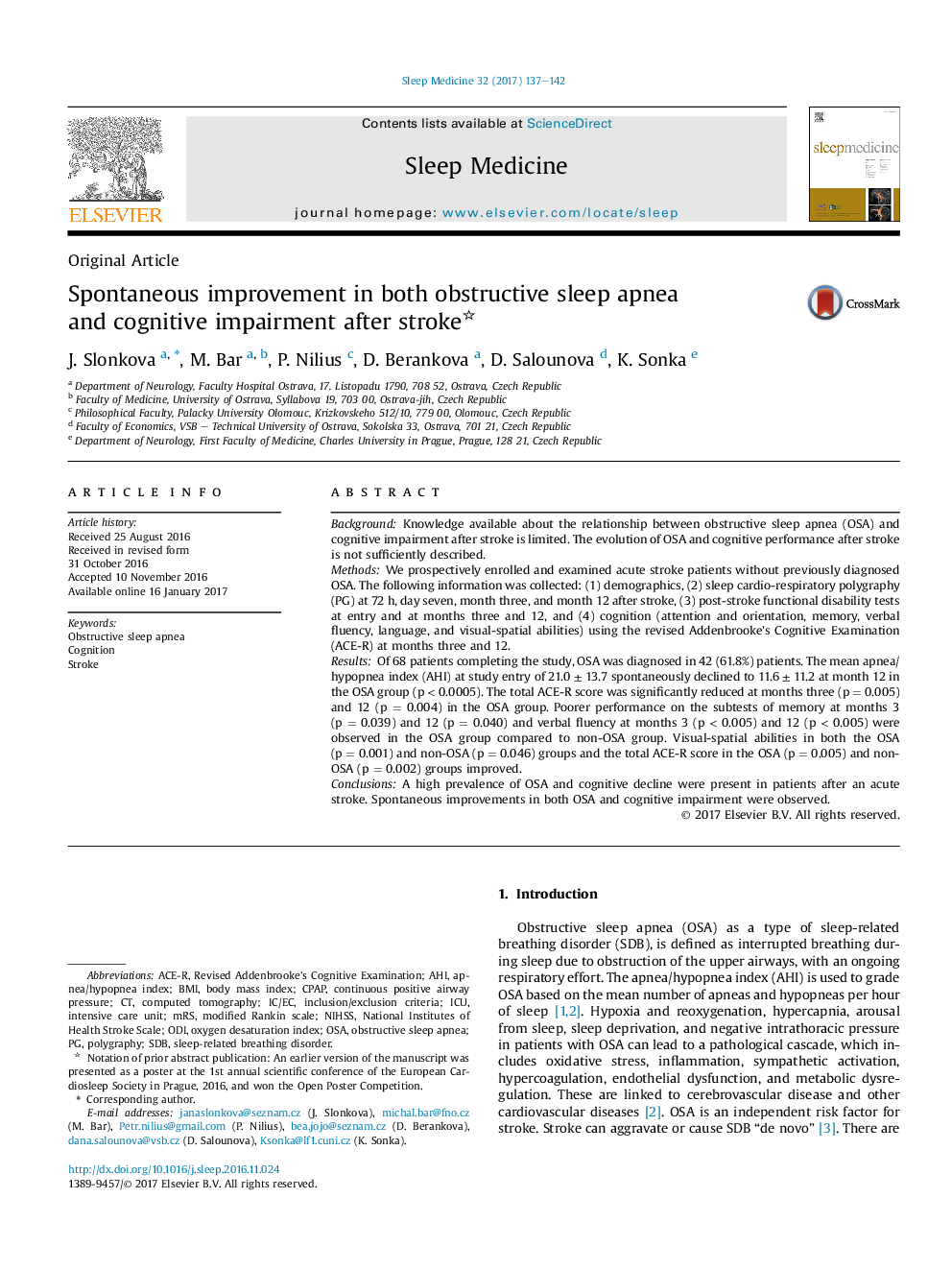| کد مقاله | کد نشریه | سال انتشار | مقاله انگلیسی | نسخه تمام متن |
|---|---|---|---|---|
| 5643642 | 1586477 | 2017 | 6 صفحه PDF | دانلود رایگان |
- There is a high prevalence of obstructive sleep apnea in acute stroke patients.
- Obstructive sleep apnea was found in 61, 8% of acute stroke patients.
- Cognitive impairment after stroke was worse in obstructive sleep apnea patients.
- Apnea/hypopnea index and cognitive impairment improved within one year after stroke.
BackgroundKnowledge available about the relationship between obstructive sleep apnea (OSA) and cognitive impairment after stroke is limited. The evolution of OSA and cognitive performance after stroke is not sufficiently described.MethodsWe prospectively enrolled and examined acute stroke patients without previously diagnosed OSA. The following information was collected: (1) demographics, (2) sleep cardio-respiratory polygraphy (PG) at 72 h, day seven, month three, and month 12 after stroke, (3) post-stroke functional disability tests at entry and at months three and 12, and (4) cognition (attention and orientation, memory, verbal fluency, language, and visual-spatial abilities) using the revised Addenbrooke's Cognitive Examination (ACE-R) at months three and 12.ResultsOf 68 patients completing the study, OSA was diagnosed in 42 (61.8%) patients. The mean apnea/hypopnea index (AHI) at study entry of 21.0 ± 13.7 spontaneously declined to 11.6 ± 11.2 at month 12 in the OSA group (p < 0.0005). The total ACE-R score was significantly reduced at months three (p = 0.005) and 12 (p = 0.004) in the OSA group. Poorer performance on the subtests of memory at months 3 (p = 0.039) and 12 (p = 0.040) and verbal fluency at months 3 (p < 0.005) and 12 (p < 0.005) were observed in the OSA group compared to non-OSA group. Visual-spatial abilities in both the OSA (p = 0.001) and non-OSA (p = 0.046) groups and the total ACE-R score in the OSA (p = 0.005) and non-OSA (p = 0.002) groups improved.ConclusionsA high prevalence of OSA and cognitive decline were present in patients after an acute stroke. Spontaneous improvements in both OSA and cognitive impairment were observed.
Journal: Sleep Medicine - Volume 32, April 2017, Pages 137-142
